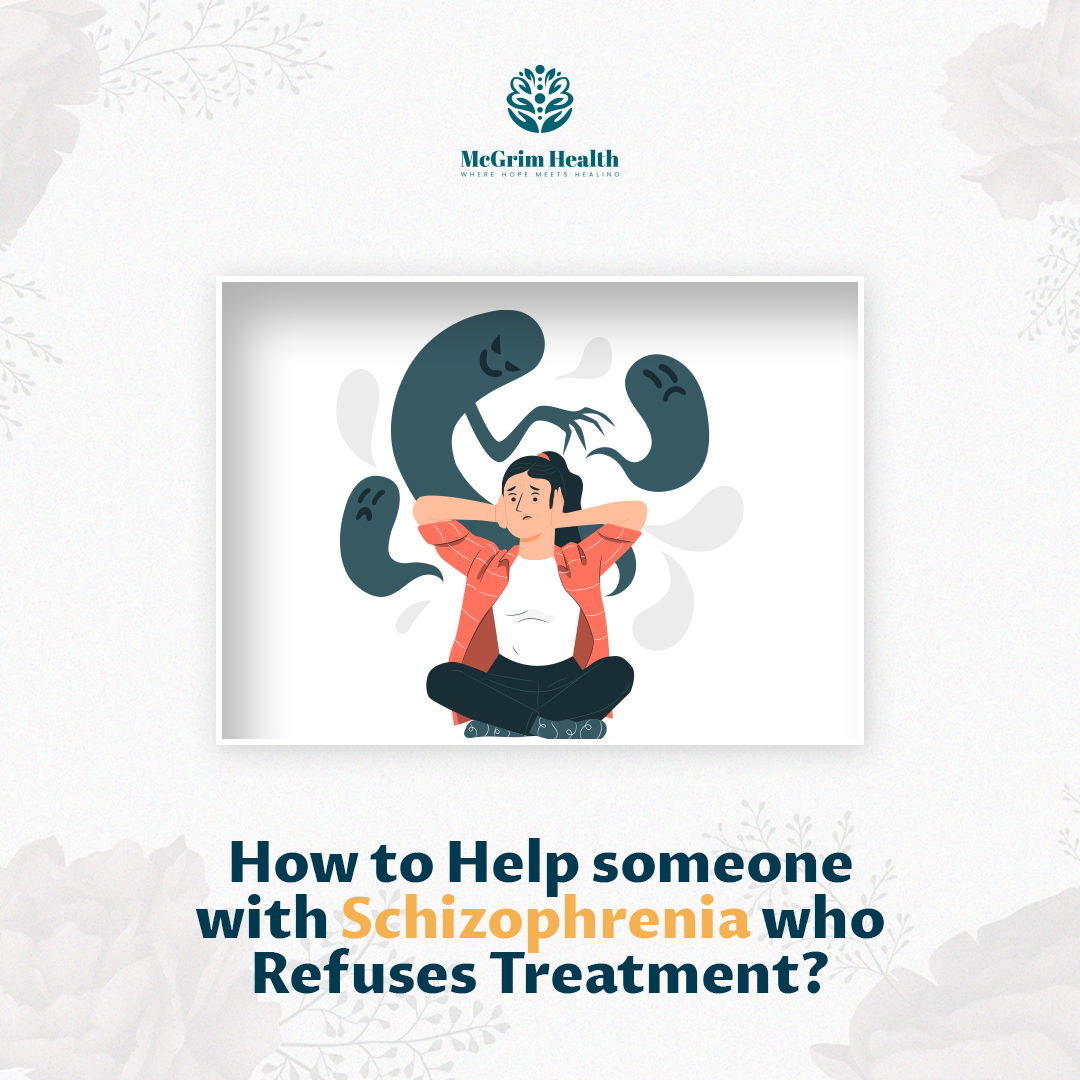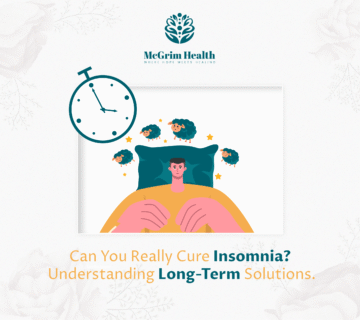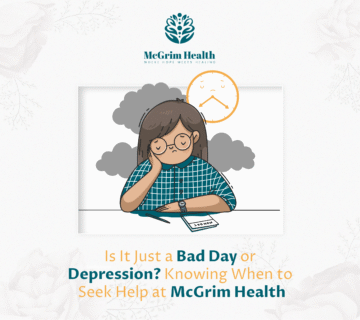Schizophrenia is a substantial consideration. It is worse when a family member refuses to go to the hospital for help or rejects concern. This severe mental condition alters a person’s thinking, feeling, and actions.
A person not accepting treatment can upset them and their family. It might seem massive, but there are help methods, even if they’re unwilling.
Schizophrenia is manageable, not curable. Get help if you suspect it in yourself or a loved one.
McGrim Health provides top treatment for recovery. You can trust us. We offer necessary care for mental health and recovery. So, join us on the path to a better mindset.
Below we’ll explain how to help someone with schizophrenia who refuses treatment. Plus, we’ll explore how to handle this situation.
Recognizing Schizophrenia and Avoidance of Treatment
About 1% of people in the United States live with schizophrenia. The main sign is not being able to tell reality from hallucinations or delusions.
Many with this illness also have paranoia. This makes them doubt others, even those in their family. It often means they turn down medical help, which is hard for families to see.
Why Do People with Schizophrenia Refuse Treatment?
Learn how to help someone with schizophrenia who refuses treatment, first understand their reasons. These can include:
- Lack of Insight: Schizophrenia can leave people ignorant of their situation. They might believe in their hallucinations and delusions. This prevents them from seeing their illness.
- Paranoia: Some with paranoid schizophrenia feel persecuted. They may think doctors and loved ones are against them. This fear makes them avoid help. It worsens their condition, leading to more distrust and isolation.
- Substance Use: Using drugs or alcohol complicates treatment. People often turn to substances to cope. This creates a dual diagnosis of mental illness and addiction. Such cases are tough. Treatment must address both issues at once.
How to Calm a Schizophrenic Episode?
It’s essential to recognize how to calm a schizophrenic episode. If an episode arises do this:
- Stay calm: Aim for coolness under pressure. Anxiety can scare or rile your loved one. Your response could either decrease or crank up the stress.
- Cut down distraction: Dim lights, quieten sounds, and clear disturbances. A serene, secure area might make them feel stable.
- Show support: Lightly assure your loved one they’re safe and you’re there to back them up.
- Call for expert help: If the episode gets worse or unsafe, medical help should be received without delay. In serious cases, local officials may need to be notified for assistance.
How to Help Someone with Schizophrenia Who Refuses Treatment?
Facing a family member who refuses to go to the hospital or medical help requires kindness, comprehension, and a calm attitude. Here are some tips for how to help someone with schizophrenia who refuses treatment:
-
Stay Calm and Be Compassionate
Anger arises when a loved one declines help, but hostility leads to conflict. So, stay calm and show compassion. Their refusal is due to illness, not malice.
Empathy reduces tension and fosters understanding. Patience and calmness create a space for offering help.
-
Educate Yourself about Schizophrenia
Getting to know the sickness can lead to greater compassion for your relative. Discover more about the ailment, its signs, and potential cures. This insight lets you chat more effectively with your kin.
Groups like the National Alliance on Mental Illness (NAMI) supply priceless details on how to deal with a paranoid schizophrenic family member.
-
Convey Softly and Sidestep Conflict
Communicating with a person with schizophrenia requires careful wording. It can help avoid making them feel defensive. Replace “You require assistance” with “What can I do to help you?”
Propose kind guidance, and steer clear of strong or blaming comments. If your husband with schizophrenia declines therapy, be kind and understanding, not commanding.
-
Get Professional Help
At times, your family may struggle to help. Don’t know how to get someone medical help when they refuse?
Speak to a mental health expert or a schizophrenia-focused psychiatrist. They can suggest ways to motivate treatment or consider other medical choices.
Hospitalization without consent, for instance, if the individual could harm themselves or others.
-
Seek Legal Assistance if Necessary
Taking legal action might be necessary if a loved one’s refusal of treatment puts them or others at risk.
Each state has different laws for involuntary commitment, which could help in severe cases. However, this is a serious move. It should only be taken after all other options are tried.
Helping Someone Resistant to Take Medication
What happens if a schizophrenic stops taking medication? Stopping medication can bring back hallucinations and delusions. It may also lead to erratic behavior, increasing the risk of self-harm or harming others. Therefore, regular treatment is key for mental health and safety.
Many people with schizophrenia stop their medication. This often leads to a quick drop in mental health.
So, knowing “what to do when a schizophrenic refuses medication?” is vital for managing their condition.
Strategies for Encouraging Medication Compliance
- Remind them of previous progress: Kindly bring up how pills helped your loved one feel better before. Like, if my son has a mental illness and won’t get help, I might discuss when his pills noticeably changed his actions.
- Get a doctor’s help: A mental health professional can stress the need for taking pills regularly in a non-threatening way.
- Set a routine: People with schizophrenia often do well with routine. A daily pill-taking schedule can lessen resistance.
Recognizing the Purpose of Substance Use
Schizophrenia and substance use often occur together. Some people self-medicate to find relief. But this can worsen their mental health.
Treating both issues at the same time is key. Adding substance abuse therapy to the care plan boosts recovery chances.
Supporting a loved one with both issues needs a complete approach. Talk to their healthcare provider about programs for schizophrenia and substance use.
When Hospitalization is Necessary?
Sometimes, you must take your loved one to the hospital to manage their health. It’s hard to see a family member who refuses to go to the hospital.
But being an in-patient can be key if they’re at risk. Schizophrenia and hospital stays are no easy ride, for the person or their family.
Yet, the hospital offers strong treatment and careful watch. Talk to a health expert about your precious person’s health.
Conclusion
As such, how to help someone with schizophrenia who refuses treatment? When a loved one with schizophrenia resists help, be kind and patient.
You can’t force them, but your support is vital. Acknowledge the difficulties and stay hopeful. A caring approach can make a difference.
Encourage them gently and remain firm. Your presence might lead them to seek help.
Finding a balance between helping and giving space is crucial. Progress is often slow, but it is important. Celebrate every small victory. You are not alone. Get help from support groups, experts, and resources.
FAQs
Why do schizophrenics walk so much?
Individuals with schizophrenia may walk back and forth a lot, a common reaction to feelings of restlessness. These feelings can be linked either to the illness itself or the antipsychotic drugs used for treatment. They might also pace repeatedly because of distress or agitation.
How to tell someone they have schizophrenia?
When disclosing a schizophrenia diagnosis to someone, it is vital to be delicate and unbiased. Engaging the help of a mental health expert can offer necessary backup and direction throughout the dialogue.
How to deal with a paranoid schizophrenic family member?
Stay calm and offer your support, but steer clear of conflicts. Gently suggest seeking expert advice. Keep the communication open and smooth to ease their fears and build trust.
Can schizophrenia patients get lost?
People with schizophrenia may become disoriented or confused, leading to getting lost. Impaired memory and focus contribute to this. So, caregivers should ensure safety, especially in unfamiliar places.





No comment